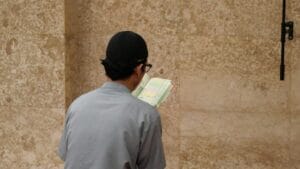Surah Al-Baqarah, the second chapter of the Quran, is the longest surah, encompassing profound guidance, stories, and lessons for Muslims. Among its treasures are its final two verses (ayat 285–286), which hold a special place in Islamic tradition due to their spiritual significance and numerous benefits. Reciting the last two ayat of Surah Al-Baqarah is a practice rooted in the Sunnah of the Prophet Muhammad (peace be upon him), with authentic narrations highlighting their protective and transformative powers. In this detailed article, we uncover 7 secret benefits of reciting these verses, exploring their spiritual, emotional, and practical impacts, while providing a trustworthy resource for Muslims seeking to deepen their connection with the Quran.
Introduction to the Last Two Ayat of Surah Al-Baqarah
The last two verses of Surah Al-Baqarah are ayat 285 and 286, which conclude this monumental chapter with a powerful declaration of faith, submission, and supplication. These verses are:
Ayat 285: The Messenger has believed in what was revealed to him from his Lord, and [so have] the believers. All of them have believed in Allah and His angels and His books and His messengers, [saying], “We make no distinction between any of His messengers.” And they say, “We hear and we obey. [We seek] Your forgiveness, our Lord, and to You is the [final] destination.”
Ayat 286: Allah does not burden a soul beyond that it can bear. It will have [the consequence of] what [good] it has gained, and it will bear [the consequence of] what [evil] it has earned. “Our Lord, do not impose blame upon us if we have forgotten or erred. Our Lord, and lay not upon us a burden like that which You laid upon those before us. Our Lord, and burden us not with that which we have no ability to bear. And pardon us; and forgive us; and have mercy upon us. You are our protector, so give us victory over the disbelieving people.”
(Translation: Sahih International)
These verses encapsulate the essence of iman (faith), tawakkul (trust in Allah), and du’a (supplication), making them a spiritual powerhouse. The Prophet Muhammad (peace be upon him) emphasized their importance in several hadiths, such as the narration in Sahih Muslim (No. 808), where he said, “Whoever recites the last two verses of Surah Al-Baqarah at night, it will suffice him.” Scholars interpret “suffice him” to mean protection from harm, spiritual fulfillment, or sufficiency in faith.
In this article, we explore 7 secret benefits of reciting these verses regularly, drawing from Quranic teachings, authentic hadiths, and scholarly insights to provide a comprehensive and reliable guide.
1. Protection from Evil and Harm
One of the most well-known benefits of reciting the last two ayat of Surah Al-Baqarah is their protective power. The Prophet Muhammad (peace be upon him) stated in Sahih Muslim (No. 808), “Whoever recites the last two verses of Surah Al-Baqarah at night, it will suffice him.” Many scholars, including Ibn Hajar and An-Nawawi, explain that these verses act as a shield against physical and spiritual harm, such as evil eye, black magic, or Shaytan’s whispers.
- How It Works: The verses affirm a Muslim’s faith in Allah, His messengers, and His divine plan, creating a spiritual barrier against negative forces. The supplication in ayat 286 seeks Allah’s protection and mercy, reinforcing this shield.
- Practical Tip: Recite these verses every night before sleeping, as recommended by the Prophet (peace be upon him), to safeguard your home and soul. Many Muslims report a sense of peace and security after making this a habit.
2. Spiritual Cleansing and Forgiveness
The last two ayat include a heartfelt du’a asking for Allah’s forgiveness: “[We seek] Your forgiveness, our Lord, and to You is the [final] destination” (ayat 285) and “And pardon us; and forgive us; and have mercy upon us” (ayat 286). Reciting these verses regularly is a means of seeking forgiveness for sins, both intentional and unintentional, and purifying the heart.
- Why It Matters: The du’a in these verses acknowledges human imperfection and seeks Allah’s mercy, fostering humility and repentance. This aligns with the Quranic promise in Surah Ash-Sharh (94:5–6), “Indeed, with hardship [will be] ease.”
- Testimony: Many Muslims share that reciting these verses after Salah or at night helps them feel spiritually lighter, as if their burdens are lifted. Scholars like Ibn Kathir emphasize that these verses are a direct appeal to Allah’s infinite mercy.
- Practical Tip: Pair recitation with sincere repentance (tawbah) to maximize spiritual cleansing. Reflect on the meaning of the du’a to deepen your connection.
3. Strengthening Faith and Trust in Allah
The opening of ayat 285 declares the unwavering faith of the Prophet (peace be upon him) and the believers in Allah, His angels, books, and messengers. Reciting these verses reinforces a Muslim’s iman, reminding them of the core tenets of Islam and their commitment to “We hear and we obey.”
- Spiritual Impact: These verses strengthen tawakkul (reliance on Allah), especially during trials. Ayat 286’s assurance that “Allah does not burden a soul beyond that it can bear” is a powerful reminder that challenges are within one’s capacity to endure with Allah’s help.
- Real-Life Benefit: Muslims facing stress, anxiety, or uncertainty often find comfort in these verses, as they reaffirm Allah’s wisdom and support. For example, a student preparing for exams might recite these verses to boost confidence and trust in Allah’s plan.
- Practical Tip: Memorize the verses and their meanings to internalize their message. Recite them during moments of doubt to anchor your faith.
4. Relief from Stress and Anxiety
The du’a in ayat 286 addresses common human fears—forgetting, erring, or being burdened beyond one’s capacity. By reciting these verses, Muslims hand over their worries to Allah, seeking relief from emotional and mental stress.
- Psychological Benefit: The act of supplicating with these verses promotes mindfulness and surrender to Allah’s will, reducing anxiety. The phrase “You are our protector” instills a sense of divine care, calming the heart.
- Supporting Evidence: A hadith in Sahih Bukhari (No. 5009) highlights the Quran’s role as a source of healing, and these verses, with their soothing tone, are particularly effective. Many Muslims report feeling a sense of tranquility after recitation, especially during difficult times.
- Practical Tip: Recite these verses slowly after Maghrib or Isha prayers, focusing on each word’s meaning. Combine with deep breathing to enhance relaxation.
5. Blessings in the Home
Reciting the last two ayat of Surah Al-Baqarah is believed to bring barakah (blessings) to one’s home. The Prophet (peace be upon him) encouraged their recitation at night, suggesting a connection to spiritual harmony in the household.
- How It Works: These verses invoke Allah’s mercy, forgiveness, and protection, creating an atmosphere of peace and positivity. The affirmation of faith and submission in ayat 285 attracts divine blessings, while the du’a in ayat 286 seeks ease and guidance.
- Community Experience: Families who recite these verses together report stronger bonds and a sense of unity. For example, a mother from Pakistan shared, “Since we started reciting these verses nightly, our home feels more peaceful, and small conflicts have reduced.”
- Practical Tip: Make it a family ritual to recite these verses after dinner or before bed. Encourage children to learn them to instill a love for the Quran.
6. Preparation for the Hereafter
The last two ayat of Surah Al-Baqarah prepare a Muslim for the ultimate journey to Allah, as they conclude with “and to You is the [final] destination” (ayat 285). Regular recitation keeps the Hereafter in focus, encouraging righteous deeds and accountability.
- Spiritual Perspective: These verses summarize a believer’s duties—faith, obedience, and seeking forgiveness—while asking for victory over disbelief, both internally and externally. This aligns with the Quranic emphasis on preparing for the Day of Judgment (Surah Al-Hashr, 59:18).
- Long-Term Benefit: By reciting these verses, Muslims cultivate a mindset of purpose and eternity, prioritizing actions that please Allah. Scholars like Al-Ghazali stress the importance of such reminders for spiritual growth.
- Practical Tip: Reflect on the verses’ mention of the Hereafter during recitation. Use them as a reminder to perform good deeds daily, such as charity or kindness.
7. Connection with the Prophet’s Sunnah
Reciting the last two ayat is a direct act of following the Sunnah, as the Prophet (peace be upon him) specifically recommended it. This practice strengthens a Muslim’s bond with the Prophet’s teachings and brings them closer to Allah’s pleasure.
- Why It’s Special: The hadith in Sahih Muslim (No. 808) is a clear directive from the Prophet (peace be upon him), making this a sunnah mu’akkadah (emphasized practice). Following it earns spiritual rewards and aligns with the Prophet’s example.
- Emotional Impact: Muslims feel a sense of connection to the Prophet (peace be upon him) when practicing this Sunnah, fostering love and gratitude. A young scholar from Nigeria shared, “Reciting these verses makes me feel like I’m following in the Prophet’s footsteps.”
- Practical Tip: Combine recitation with sending salawat (blessings) on the Prophet (peace be upon him) to enhance spiritual rewards. Teach others about this Sunnah to spread its benefits.
Must Read:
How to Incorporate These Verses into Your Life
To fully reap the 7 secret benefits of the last two ayat of Surah Al-Baqarah, consider these practical steps:
- Memorize the Verses: Use audio recitations or apps like Quran Companion to learn the verses and their pronunciation.
- Understand the Meaning: Read tafsir (exegesis) by scholars like Ibn Kathir or Mufti Taqi Usmani to grasp the verses’ depth.
- Recite Nightly: Make it a habit to recite after Isha or before bed, as per the Prophet’s recommendation.
- Reflect and Supplicate: Pause to reflect on the du’a and personalize it with your own supplications.
- Teach Your Family: Encourage household members to recite together, creating a collective spiritual practice.
- Combine with Other Adhkar: Pair with Ayat al-Kursi or the three Quls (Surah Al-Ikhlas, Al-Falaq, An-Nas) for added protection.
- Stay Consistent: Consistency is key to experiencing the verses’ transformative power. Use a habit tracker to stay committed.
Why These Verses Are a Trusted Practice
The benefits of reciting the last two ayat of Surah Al-Baqarah are rooted in:
- Authentic Sources: Hadiths in Sahih Muslim and Sahih Bukhari confirm their virtues, ensuring reliability.
- Scholarly Consensus: Renowned scholars like Ibn Hajar, An-Nawawi, and Ibn Taymiyyah emphasize their importance.
- Community Experience: Millions of Muslims worldwide testify to the verses’ protective and calming effects.
- Quranic Authority: As part of Allah’s revelation, these verses carry divine wisdom and blessings.
This practice is a testament to the Quran’s timeless guidance, offering spiritual and practical solutions for modern challenges.
Conclusion
The last two ayat of Surah Al-Baqarah are a gift from Allah, offering 7 secret benefits that enrich a Muslim’s life: protection from harm, spiritual cleansing, strengthened faith, stress relief, blessings in the home, preparation for the Hereafter, and a connection to the Prophet’s Sunnah. By reciting these verses regularly, Muslims can experience peace, purpose, and proximity to Allah, all while following a practice rooted in authentic tradition.
Incorporate these verses into your daily routine, reflect on their profound meanings, and share their benefits with others. As you make this a habit, you’ll discover the transformative power of the Quran, illuminating your path in this world and the next. Start tonight—recite the last two ayat of Surah Al-Baqarah and unlock their spiritual treasures.














Post Comment